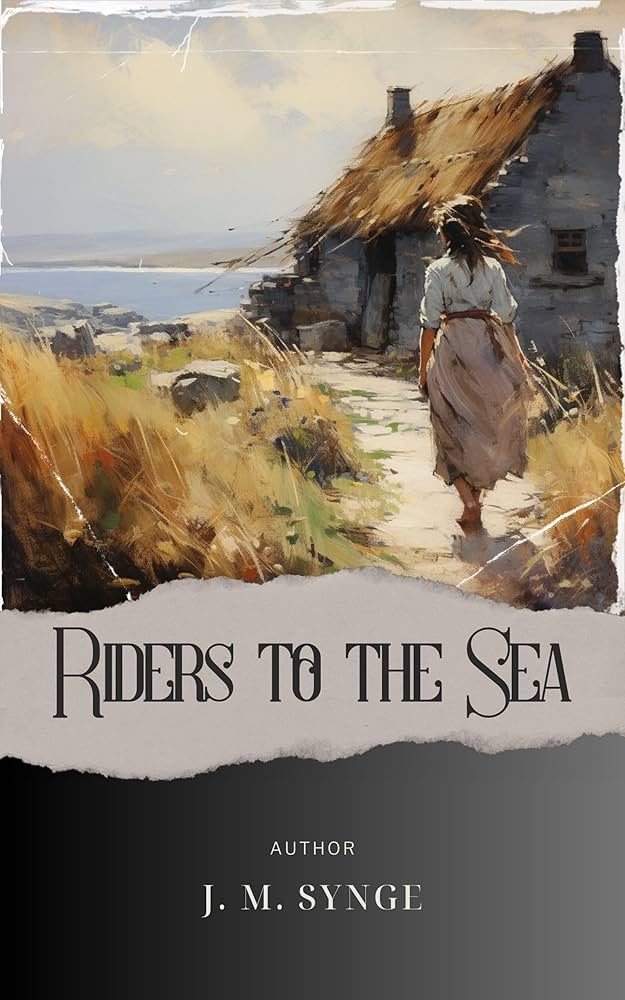Riders to the Sea
byRiders to the Sea opens with an atmosphere thick with silence and tension, as two sisters sit in a modest cottage, clutching hope and fear in equal measure. The sea has long been both a provider and a taker in their lives, and now it looms as an invisible antagonist once again. They are waiting for certainty, a final sign regarding the fate of their brother Michael, who was lost to the waves like so many men before him. The priest has sent clothing from Donegal, found on an unidentified body, and the sisters examine it cautiously, unwilling to accept what their hearts already suspect. The details of stitching and garment wear slowly match with memories of Michael’s wardrobe. As recognition sets in, grief creeps silently into the room. Yet, before full mourning can begin, their focus shifts to another impending absence—Bartley, the only son left, prepares to face the very force that has taken his kin.
Maurya, the matriarch, enters carrying an urgency born not just of love, but of instinct and long-suffering experience. She pleads with Bartley to postpone his journey, sensing the sea’s mood through forces no meteorologist could chart. Bartley, resolute and burdened with the responsibility of survival, dismisses the superstition, insisting on making the sale of horses that will support them. His decision is not rebellious, but rooted in duty—he must earn, even if it means facing the storm. Maurya’s resistance crumbles under the weight of her son’s determination. She rushes out, bread in hand, hoping at least to bless him before his departure. But her mission fails, and she returns shaken not only by that failure, but by a terrifying vision she believes is Michael’s ghost walking alongside Bartley.
When the garments from Donegal are finally confirmed to be Michael’s, a layered grief settles in. The home becomes a sacred place of mourning, suspended in time, as each woman contemplates the loss of one brother and the possible death of another. The suspense doesn’t stretch long, as villagers arrive bearing the tragic news of Bartley’s drowning. The gray pony—a symbol of both their livelihood and their doom—had kicked him into the sea. There is no dramatic cry from Maurya, no flailing or wailing; instead, a calm descends. It is the calm of someone who has faced the worst many times and has nothing more to fear from the sea.
Maurya’s transformation in these final moments is as powerful as it is heartbreaking. She shifts from desperate mother to mournful philosopher, acknowledging that no living son remains to be stolen from her. Her grief is deep, but not wild; it has ripened into acceptance. She speaks of the sea no longer as an enemy to fear, but as a relentless force that has finally finished with her family. Her words carry a haunting serenity as she prays for rest, for her sons and for herself. There is a dignity in her pain, a stillness that contrasts with the chaos the sea brings. In giving her sons to God, she finds release from the constant dread that has plagued her existence.
The setting of the Aran Islands plays an integral role in amplifying the themes of the play. It’s not just a backdrop but an entity that breathes through every line—wind, wave, and absence all speak through the dialogue. The play reflects a time when life was lived at the mercy of nature, when survival was as much about emotional endurance as physical sustenance. For contemporary readers, it also offers a profound meditation on maternal strength, community rituals, and the cost of resilience in the face of uncontrollable loss. “Riders to the Sea” is not just a story about a family—it is a requiem for all families who live where land meets sea, and where love is always shadowed by risk.

